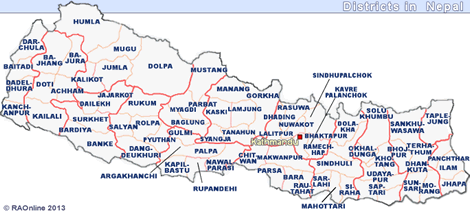|
Reports
on Nepal's Civil War
|
   December
2004
December
2004
| SETTING
FIRE TO ANYTHING THAT MOVES |
On
the eve of King Gyanendra's visit to India, the Maoists launched a campaign
to cripple the country by blocking off all main highways in Central Nepal
with booby-trapped barricades. For Kathmandu Valley, this is effectively
another blockade since all four highways linking the capital to the rest
of the country have been blocked for two days now. Shops are hoarding vegetables
and food, and queues have formed at petrol stations. 18 lorries on the
East-West Highway were burnt to cinders by the Maoists for defying their
blockade.
 |
Full
story ... |
December
2004
| King,
politicians and Maoists fiddle while Nepal burns |
PROSPECTS
for peace to calm Nepal's nine-year-old Maoist rebellion look as bleak
as ever. The government has set a deadline of January 13th for the Maoists
to enter talks. If they refuse, it says it will step up its military campaign
and-bizarre threat-hold an election. The Maoists, recognising that the
"constitutional forces" (the monarchy and the political parties) are in
disarray, have spurned the ultimatum. A bloodier phase looms in a conflict
that has claimed more than 10,000 lives.
 |
Full
story ... |
|
Teachers
at the frontlines
|
December
2004
| Dailekh's
teachers have been on strike for two months to protest forcible recruitment
by Maoists |
When
Maoists murdered Mukti Nath Adhikari, a respected social worker and teacher
in Lamjung two years ago, the government that employed him, politicians
and activists didn't speak out. A magazine cover printed a picture of him
nailed to a tree like Jesus Christ and Adhikari became an icon of the fate
of teachers in Nepal's Maoist war. Intimidated, tortured and killed by
the Maoists and abandoned by their employers, the government. Adhikari's
murder was also a reminder of just how brutal the Maoists had become. It
is featured in Dhruba Basnet's film, Schools in the Crossfire being screened
at the Kathmandu International Film Festival.
 |
Full
story ... |
December
2004
| Dailekh's
villagers fear for their lives |
Returning
to Dullu in Dailekh after last month's women-led revolt, it is clear anti-Maoist
feelings are still running high.
The
spontaneous outrage has spread even to outlying VDCs and the rebels have
either been chased out or caught and handed over to the army. The Maoist
western command in-charge, Diwakar, has been in damage-control mode after
issuing a self-critical statement. But his district-level leaders have
taken the uprising as an affront to their prestige and retaliated against
unarmed civilians wherever they could.
In
the latest incident on Sunday, a group of armed Maoists surrounded the
village of Khadkawada, beat up locals and abducted four of the women leaders
who had been leading the anti-Maoist movement. Earlier, on 7 December,
when villagers had gathered at nearby Chhiudi to discuss the recovery of
property that the rebels had looted, a local Maoist cadre threw a socket
bomb at the group.
 |
Full
story ... |
December
2004
| Western
Nepal remains cut off by landmined highways |
Villagers
this week cross a mud and boulder obstruction booby-trapped with bombs
on the Gyang Khola Bridge along the East-West Highway.
It
has been nearly three weeks: nothing moves west of Nepalganj. By blocking
the main East-West Highway west of Kohalpur with barricades and bombs,
the Maoists have brought western Nepal to a standstill.
Hundreds
of thousands of people have been affected. Many people are crossing into
India to travel to other parts of Nepal like they used to do 15 years ago.
Nepal is a war zone.
 |
Full
story ... |
November
2004
| Woman
did something the men never had the courage to do |
"We
don't need Prachandapath. You can't kill people anymore." These are the
anti-Maoist slogans the people of Dailekh have been shouting for the last
two weeks. Young and old, men and women, they protested openly against
the rebels. Once sympathisers of the Maoists, they are now protesting spontaneously.
Not too long ago, they had applauded and carried Maoist flags, but things
have changed. The rebels didn't show fear when the Royal Nepali Army attacked
their villages but now they have to hide from the rebellious public. They
are facing the consequences of having taken the people for granted. It
is time for them to acknowledge that the sickles of the mass are more powerful
than the AK-47s of a few armed militants.
 |
Full
story ... |


|



